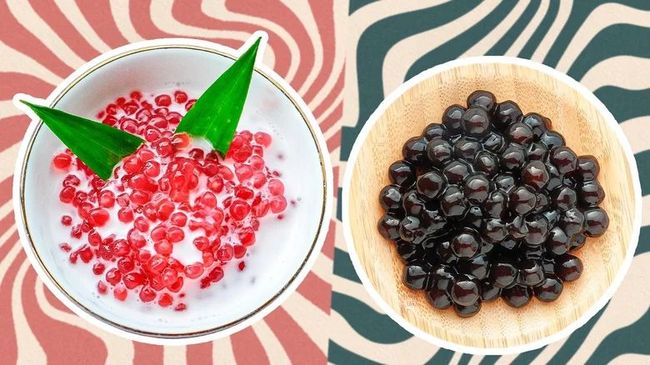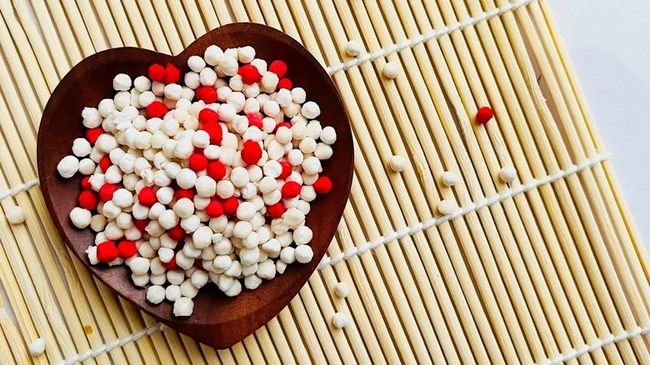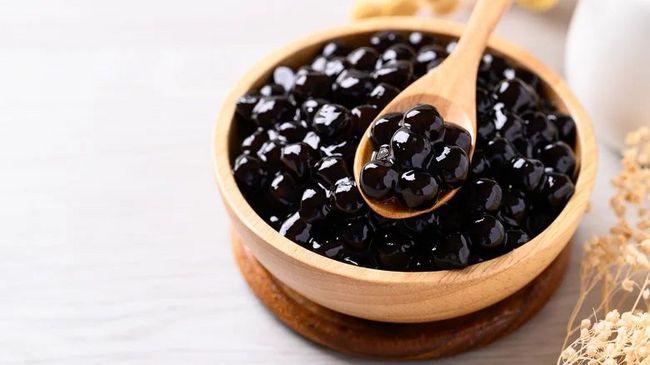✕

Column: industry Tag: Desserts,East Asian Style,Pearls Published: 2024-07-22 10:22 Source: www.mashed.com Author: DAISY HUYNH

Static Media / Shutterstock
If you're a fan of East Asian desserts, you may come across sago and tapioca pearls quite often. They make stellar additions to countless treats such as sweet soups, halo-halo (a Filipino shaved ice dessert), and even beverages because of their versatility and adaptability. At first glance, it's easy to mistake these two ingredients for one another or fall under the assumption that they're just different varieties of the same thing. After all, they do look pretty similar. Although not the exact same sizes, they're both quite small. The resemblances extend to their glossy exteriors, opaque colors, spherical shape, and starchiness when cooked.
However, despite these similarities, they are very different, and the differences begin with their main ingredients. Sago is derived from palm trees and tapioca pearls are made from a tuberous root. There's also a dissimilarity in textures, and of course, common culinary uses. Sago is a familiar fixture in dessert soups. On the other hand, you may have seen tapioca pearls in the popular Taiwanese beverage bubble tea.
Sago is an Indonesian staple

Delsy Angelina Radio/Shutterstock
Sago is a starch derived from the pith of various tropical palm trees, most notably the true sago palm, which is native to Southeast Asia. Once extracted, the pith is processed into dry, tiny pearls. They are then boiled and simmered until they become translucent with a sticky consistency. Sago's flavor is relatively neutral and mild, accompanied by a melt-in-your-mouth tenderness.
In Indonesian cuisine, sago is considered a staple ingredient, often making appearances in a wide variety of dishes. In baked goods as well as soups and sauces, it can function as a thickening agent. It's also the main ingredient in sago puddings — simple, quick desserts that include coconut milk, fresh fruits, and other customizable additions. You may also find it in sago soup, with milk, jelly grass, fruit cubes, and other tapioca toppings. Other than that, sago can also be used to make dishes like pancakes and porridge.
Tapioca pearls are good for boba tea and more

Nungning20/Shutterstock
Tapioca pearls' main ingredient is cassava root, which is extracted from a tuberous plant called cassava. Along with sweet potato starch, corn starch, and sugar, it's mixed into a paste and rolled into small, round balls. These spheres are then boiled, simmered, and stirred until they expand and become translucent and gummy. On their own, tapioca pearls offer very little flavor. Their main allure lies in a unique texture that significantly bulks up various drinks, desserts, and even savory dishes. Prepared properly, they have a special blend of firmness and chewiness that can't be achieved if your tapioca is overcooked. What you'll get instead are mushy tapioca pearls that stick to each other. Alternatively, they are hard and crunchy if undercooked.
You'll often find large tapioca pearls sitting at the bottom of bubble tea, ready to be slurped through a wide straw. As a dessert topping, they can be added to ice cream, panna cotta, flans, cakes, and many other sweets. In India, tapioca pearls can be found in a delightful comfort food called sabudana khichdi, joined by toasted peanuts, cumin seeds, and chopped potatoes.
Since it's cheaper and easier to harvest cassava than the true sago palm, tapioca pearls are also marketed as a more affordable version of sago. This means you'll find them in sago-centric recipes such as puddings and dessert soups as well. Still, sago and tapioca pearls are different despite similar appearances and occasionally overlapping culinary uses.
Previous:This Is Our Least Favorite Costco Food Court Item
Next:You Should Be Adding Rum To These Flavors Of Homemade Ice Cream
Hot key words
Hot Products
Popular Vendors